Do you feel like you should be reading your Bible but don’t know where to start? Are you tired of not understanding what other believers are talking about? Reading the Bible can be intimidating, but I guarantee you can do it—and it can even be enjoyable. Here are some tips for reading your Bible each day (plus a few reading plans to guide you).
So you made your decision to follow Jesus a while ago. You’ve wanted to start reading your BIble, but either you haven’t known where to start or you tried to read it from the beginning like any other book and didn’t get far.
Some of the books in the Old Testament can get a little . . . tedious.
What should you do? How can you get past the intimidation? And even foster a love for it.
Well, we’re going to talk about just that today.
Benefits of Reading the Bible as a Believer
I probably don’t really need to tell you the benefits of reading your Bible; you probably know many of them—and feel guilty about not just doing it—but I’m gonna put these out there anyway.
#1 – It teaches you the character of God.
#2 – It teaches you who you are in Christ.
#3 – It teaches you how to lead a God-honoring life.
#4 – It teaches you the context of the Bible and protects you from false teaching.
#5 – It strengthens your faith.
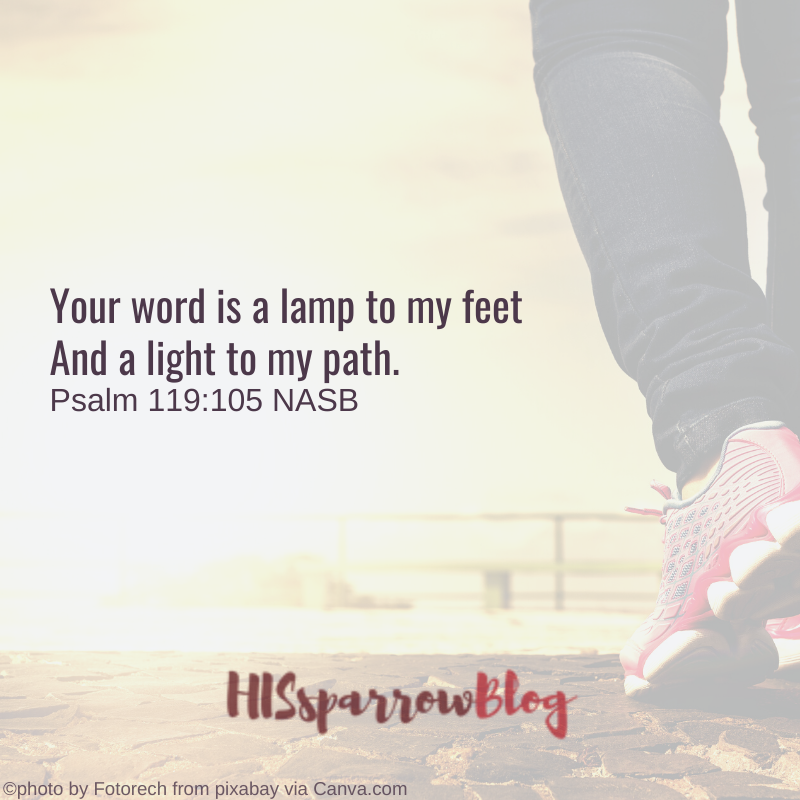
Okay. Fine. But is reading the Old Testament really necessary? Isn’t it out of date?
There are some who would say that: “Give me the New Testament with all of God’s love. The Old Testament is not only fire and brimstone, but the New Testament cancels it. The Old Testament is full of obsolete laws and regulations. The New Testament is full of promises.”
Here’s what I say: The Old and New Testaments are both full of love and promises.
By reading the Old Testament, I see what it meant to live in a fallen world with no Savior. Priests were required each day to shed the blood of innocent animals to atone for the sins of Israel—over and over, countless sacrifices that would need to be done the next day too. And there was no redemption for purposeful sin.
By reading the Old Testament, I learn the true significance of Jesus’ sacrifice: just as the blood of the lamb smeared across the Israelites’ doorposts in Egypt saved them, the blood of Jesus—the Passover lamb—saves us.
Because of the Old Testament, I understand the significance of the torn veil at Jesus’ death—the significance of being able to approach the throne of God boldly.
In the Old Testament, I see the heart of a God Who never gave up on a fallen world—even when that world rejected Him again and again.
Without the Old there is no New.
And without the Old, we are vulnerable to missing the context, because at the end of the day, the Old Testament is also God’s Word to us.
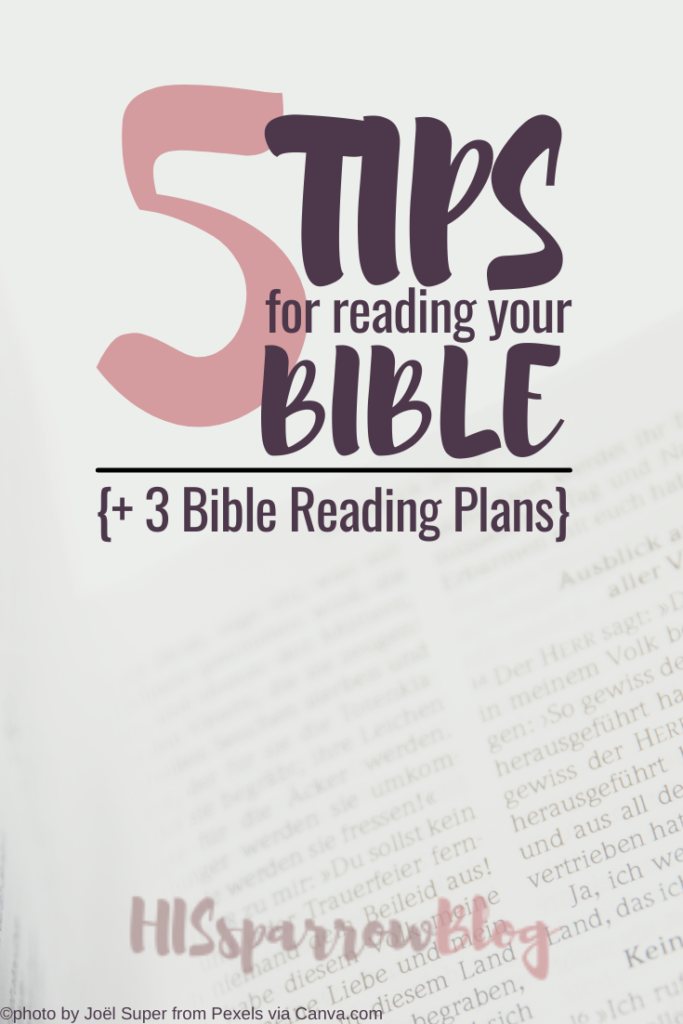
Tips for Reading Your Bible
So now that we’ve gotten that out of the way, let’s get on to several tips to help you get started reading your Bible.
#1 – Review your motivation.
Let go of the guilt; it’s never been an adequate companion to progress. Thinking about why you want to read your Bible will give you the motivation you need.
#2 – Pray.
This could go along with the previous tip, but it deserves its own place. Ask God to reveal His Word to you. Ask Him to write His words on your heart.
#3 – Use a translation you can follow.
If the King James Version is hard for you to read, then read whatever translation that allows you to follow along.
Some people will tell you that you must read the King James Version (KJV), “because it’s the original. You can’t read other versions, since they’ve been watered down from the KVJ—it’s only a natural consequence.”
However, the KJV isn’t the original. It was translated from the Greek and Hebrew into English in the early 1600s. It was a wonderful blessing to English-speaking believers of the time to be able to read the Bible for themselves. But there was another English translation before it (Wycliffe, 1382) as well as portions of the Bible before even that.
Since then, several other publishers have released other translations. These publishers studied the original transcripts, not the KJV, and did their best to preserve the original meaning of the Hebrew and Greek—two languages with many more words and distinctions than English.
Some of these translations are literal, or word-for-word translations (like NASB, NKJV, and ESV), while some are thought-for-thought (like NIV, CSV, and NLT) or paraphrased (like the MSG).
#4 – Start small.
Sometimes it’s easy to feel overwhelmed by the size of the Bible and what you’re expected to do as a Christian. But you don’t have to tackle the whole thing at one time, and you definitely don’t have to read it from cover to cover in one go. In fact, I recommend that you not start with Genesis but start with John (more in the plans below).
You don’t have to read the Bible in a year. One or two chapters each day will help you get started and create the habit.
#5 – Build the habit.
Find the time of day that works for you. Morning person? Then maybe you want to read your Bible as soon as you wake up. Or maybe on your lunch break. At night, before you go to sleep may work better for a night owl. Whatever it is, do it. Read even one chapter each day, even if you don’t feel like it that day, and one day you’ll realize it’s become a godly habit—one you even enjoy.
Bible Reading Plans to Get You Started
Below are a few simple plans to follow, and if you click this link (or the images above), I’ve made a printable for each one—great for checking off your progress as you go.
#1 – Beginner
Start with John, then read Acts, and continue with the rest of the New Testament. Once you’re comfortable with that, go back to the Old Testament.
#2 – In Two Parts
Read the Bible in two parts: one chapter from the Old testament and then one from the New Testament each day. This will help with getting bogged down in some of the historical books. There are more books in the Old Testament, so when you run out of books in the New, just start over.
#3 – In Three Parts
This plan is similar to the last one, but read the Bible in three parts, instead of two:
- Part One: Historical Books (Genesis–Job)
- Part Two: Poetical/Prophetic (Psalms–Malachi)
- Part Three: New Testament (Matthew–Revelation)
Each day read one chapter from each section. You can read from two in the morning and one at night or vice versa.
Reading the Bible can be daunting at first; it’s a really long book!
But you can do it. And you’ll be glad you did one day.
Have any tips to add for reading your Bible? Let me know in the comments.
Additional Resources
- How to Choose an English Bible Translation: Your Ultimate Guide from Ashley Harris from Faithfully Planted
- Sweeter Than Honey: Please Grant Me Success from InstaEncouragements
- Is the NIV a Corrupt Bible Translation and the KJV the only “Inspired” Translation? from Allen Parr with The Beat
- 5 Simple {Yet Powerful} Verses to Live By This Year from HISsparrowBlog
- Christian Behavior: How Good Are We Really At These Simple Social Graces? from HISsparrowBlog
- 5 Bad Habits I Want to Break This Year from HISsparrowBlog
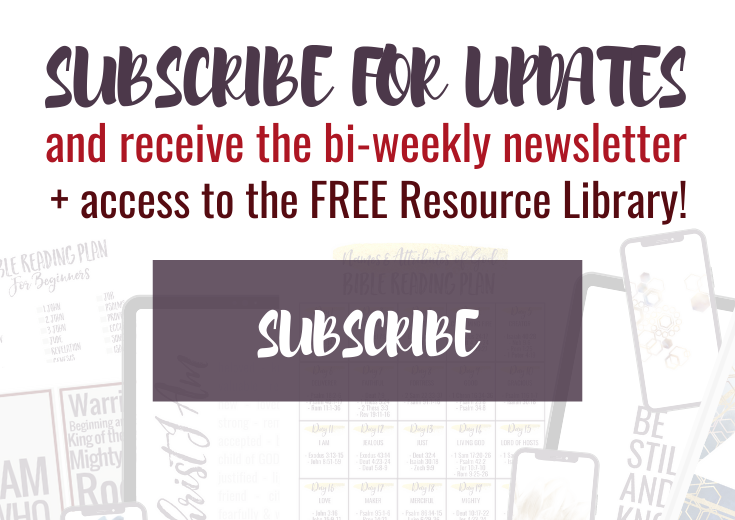
I frequently link up with the following: Grace & Truth with Embracing the Unexpected, Tell His Story with Jeanne Takenaka, Let’s Have Coffee with Joanne Viola, and Blessing Bloggers with Deb Wolf.

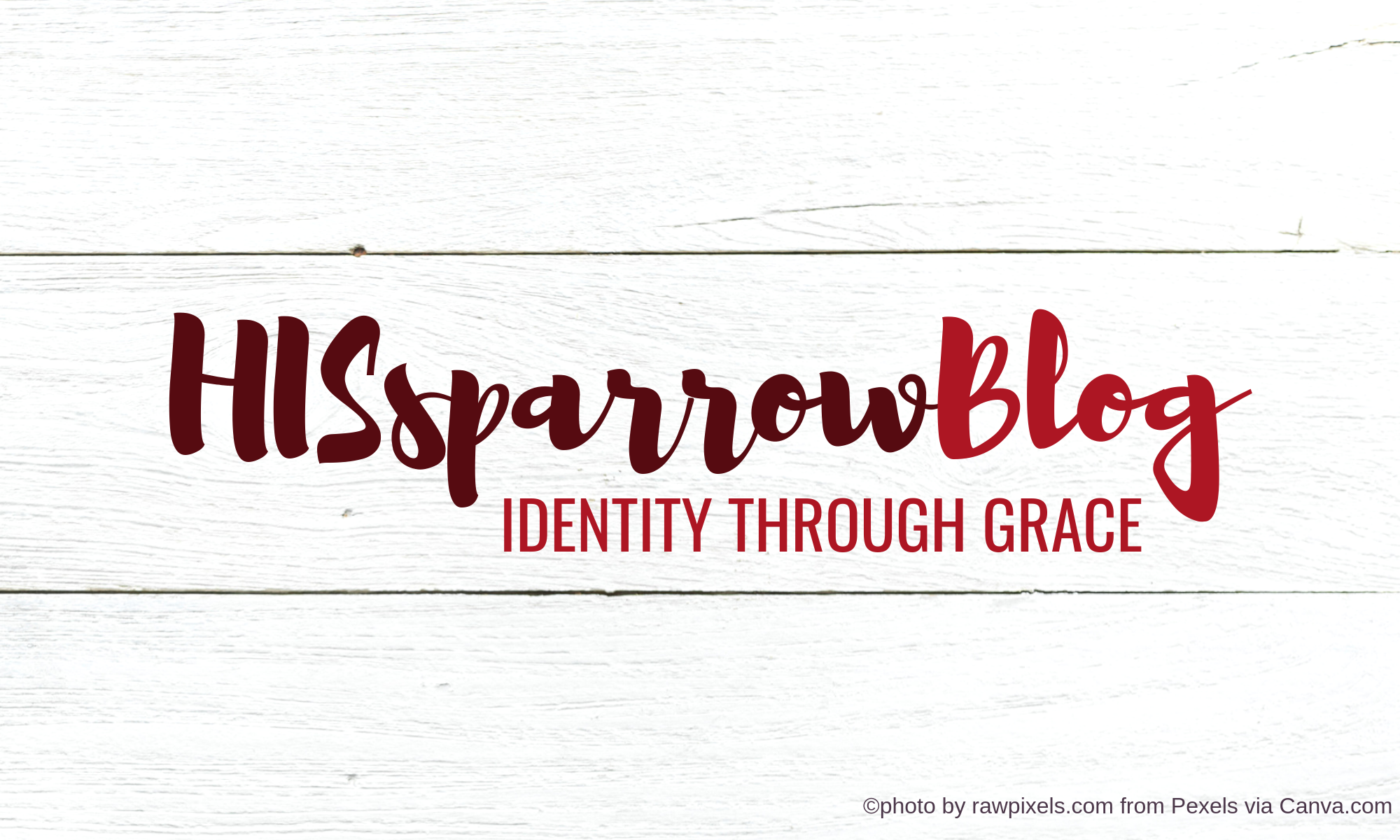
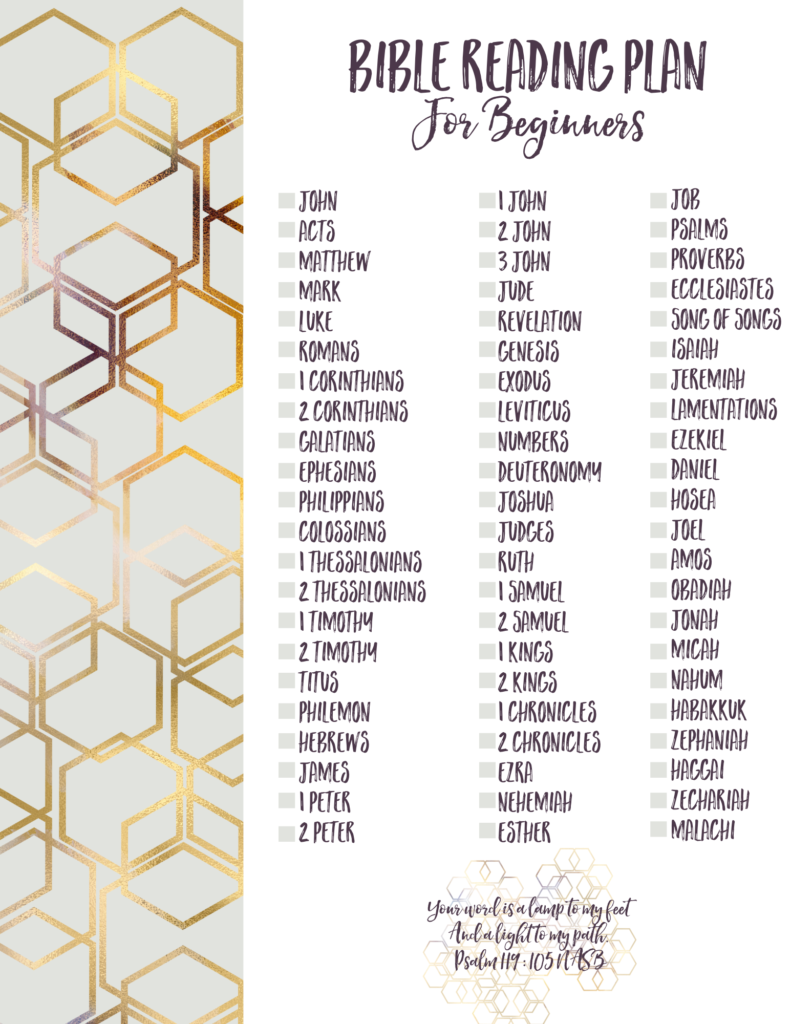
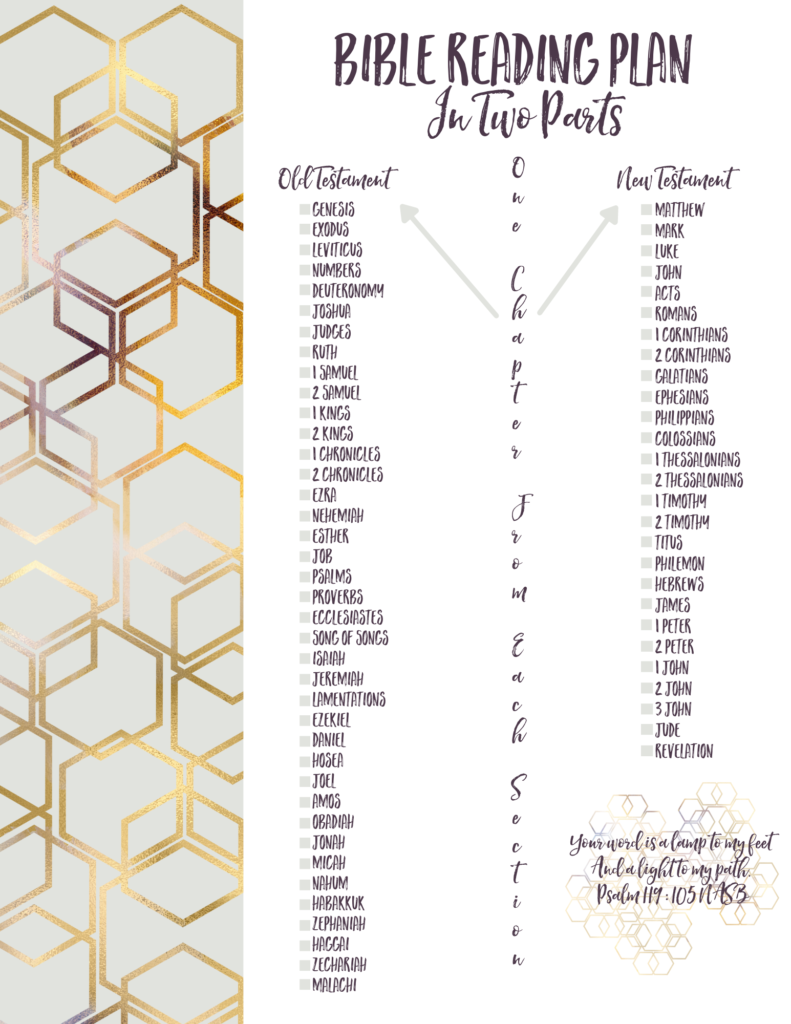
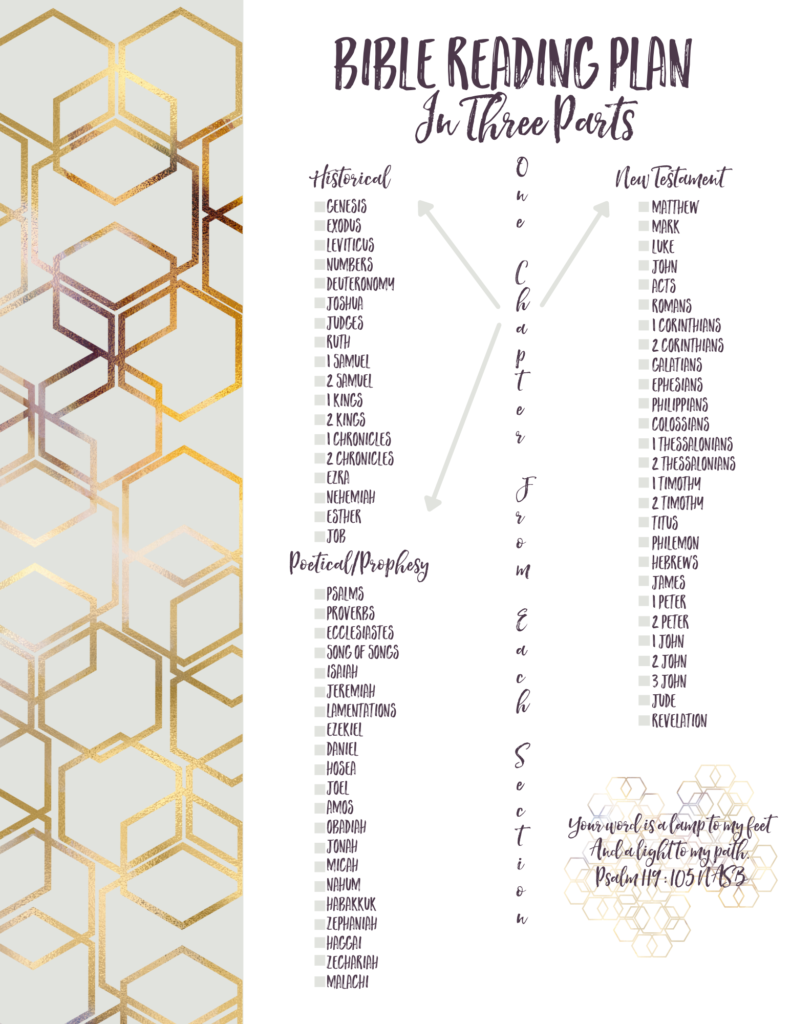
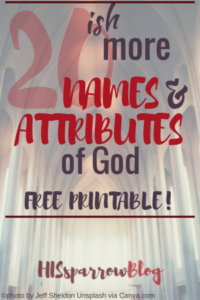

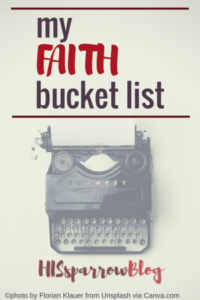
Good information. Glad you did this one. Should help lots of people.
Thank you for your steadfast encouragement! Love you.
I use a 2-year plan that’s really worked for me for years and years! I just cycle back through when I finish, but with a different translation each time to help the words stay fresh.
That’s a wonderful idea, Lisa!
Great tips! I love any encouragement to get people into God’s Word. I used to read straight through, but not in a year–I wanted to feel free to camp out in a passage for a while if need be. Our church now has a reading plan where we go through a book at a time, a chapter a day, five days a week, leaving weekends for catch-up. We go back and forth from Old to New–we start with Genesis, then Matthew, then Exodus, etc. Then on Sunday mornings we discuss what we’ve read that week. I forget how long it takes us to get through the whole Bible. Some year I would love to read a Chronological Bible.
That’s a wonderful plan, Barbara! And how fun to do it with others. I’m with you: it’s not that important to read the whole thing in a year. Thanks so much for stopping in!
Thank you for sharing this wonderful message and plans. Blessings.
Visiting today from Inspire Me Monday #17
Thanks for commenting, Paula!
Ashley, what a wonderful, encouraging post! I read the Bible through every year using various plans and can testify to the value of this lifelong habit. I love your tips, as often I can grow weary or too “familiar” with scripture. Your ideas breathe fresh life into a valuable habit!
I’m so glad you were encouraged, Donna!
Wonderful suggestions. I switch Bibles every few years so that in reading different versions the words stay fresh and alive. I don’t tend to skim over the words as much.
That’s a wonderful idea, Joanne!
These are great tips and great suggestions for reading plans. I use audio Bibles in various versions which keeps the Bible fresh. I’m amazed when listening to the Bible how the stories come alive.
Wonderful idea, Lisa!
What a great post! I, especially, enjoyed your reasons why the Old Testament is so important!
So important! Thanks so much for stopping in, Donna!
Great information! Thanks for sharing.
Thank you!
Chrono is my all-time favorite plan!
I haven’t tried that one yet. Not sure why I keep putting it off, because it seems like a wonderful way to read the Bible. I’ll have to add try it next. Thank you for commenting today!
I love the connections between the Old Testament and the New Testament. Without them both, the story is incomplete! Checking my motivation is an important step for me to keep in mind. Reading the bible needs to become more than just a “check” in my daytimer! Thanks for putting all of this together.
Excellent point, Lynn! Thank you for commenting!
I’ve used the Chronological Plan a few times and I add that to whatever seasonal study I’m doing (currently leading a group through 1 & 2 Timothy and Titus). Teaching helps me stay accountable, too! I do find I have trouble focusing when using my phone app for study, so I usually listen to it while reading in my actual Bible. Underlining, highlighting and notetaking really help me stay “IN!” And yes yes, for the thread of God’s story through ALL of scripture.
I’m glad you said that, Angela! I’ve found that interacting more with the Bible helps me to engage more, too. Thanks so much for stopping by.
Wonderful post full of practical suggestions! Without the Old Testament, the New Testament wouldn’t make much sense. Jesus is there from beginning to end, isn’t He?
Thanks for linking up!
Blessings,
Tammy
Thank you for commenting, Tammy!
I love this one so much, friend! What a gift to help others open their Bibles and encounter the Living God!
Thanks for stopping by today, Stacey!